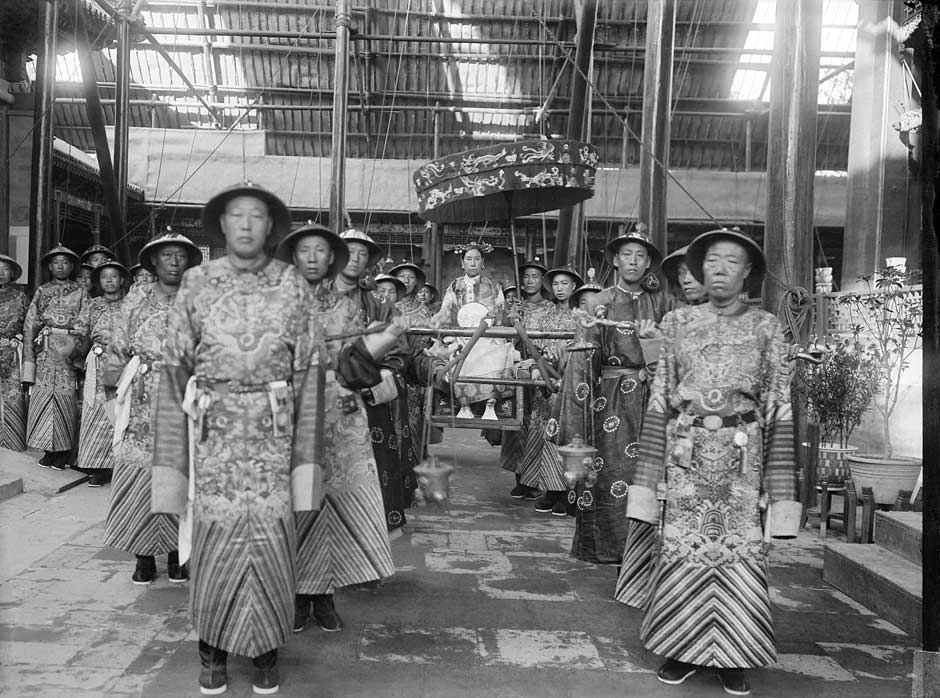The image above is subject to copyright.
Copyrights for Photographic Reproduction
Power within a society is expressed firstly by the superiority of physical force and weapons. It is then consolidated by the development of administrative, governmental and economic systems and a hierarchy, which may be highly centralised, as in China and Japan, or more diversified, as in India or the former East Indies.
Despite the immensity of its empire, the Chinese court was the most centralised and one of the most sumptuous in the world until its downfall in 1911. Its power depended on a formidable administrative pyramid and the uniform use of Chinese writing throughout the empire.

Empress Dowager Cixi escorted by eunuchs, around 1903-1904 © Freer Gallery of Art and Arthur M. Sackler Gallery Archives, Smithsonian Institution
© 2021 Musée d'ethnographie, Genève